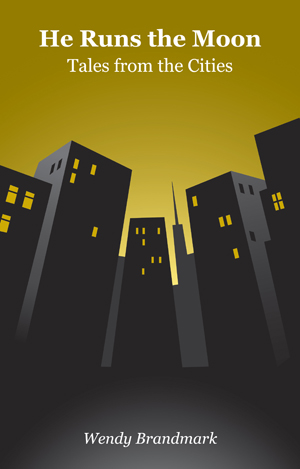
Wendy Brandmark on How Cities Have Become Characters in Her Fiction
The Boston/Cambridge area seems more a backdrop than an inspiration or influence, yet the stories which emerge from there share a sense of fragmentation. I feel I have just begun to explore London in my fiction; I don’t have the distance of time or place, which has allowed me to shape an identity for New York and especially Denver. In my second novel, The Stray American, I wrote about London from the point of view of an American lawyer, but in other London stories I don’t have the framing device of an expatriate. It is worth noting that I wrote both of my novels and most of my stories since I moved to Britain in the 1980s. I think that living in London has allowed me to reflect back on all the other cities of my life.
YZM: Do you consider yourself primarily a short story writer or a novelist?
WB: I write both and will continue to do so. I enjoy writing short stories more than novels. I feel the short story form offers more opportunities for experimentation and yet is more manageable than the novel. But there are stories that can only be told through the long form. At some point I would like to write a kind of hybrid, a novel of stories.
YZM: Your two novels deal with politics and race; care to elaborate?
WB: I didn’t set out to write didactic novels but I think we experience political issues on a personal level; they are about values. My first novel, The Angry Gods, reflected the political paranoia and racism of the 1950s and to some extent the 1970s. I wanted to write about what happens to a traditional Jewish family in the 1950s when the daughter has an affair with an African-American man. It was like throwing a stone in a stagnant pond. The writing of that novel showed me how deep and enduring racism is and how we seem always to need the ‘other.’ My second novel, The Stray American, is a lighter, comic work, but it too is about the experience of the outsider, and of course there is the backdrop of the Iraq war and disaffected Americans.
YZM: In the short story “The Stone Woman,” you very hauntingly describe a dybbuk. What meaning did this have for you?
WB: I first learned about dybbuks when I read the stories of Isaac Bashevis Singer. I went to a talk he gave in Denver, where I asked him about the meaning of the dybbuk. I was fascinated by the idea of possession by a restless spirit, of spiritual entrapment, and I seem always to be writing about characters haunted by the dead and departed. The dybbuk of “The Stone Woman” takes many forms. She is the mythical woman once trapped in an unhappy marriage who inhabits a stone angel in a clock tower, the grandmother who tried to escape her oppressive family and the limitations of a Jewish patriarchal society, and the holocaust survivor possessed by terrible secrets. The main character is a sensitive young girl who witnesses all these stories but doesn’t understand their significance. Yet the stone woman invades her dreams, and there is the sense that she will always carry these women inside her.
YZM: How does your Jewish upbringing work its way into your writing?
WB: I did not have a religious upbringing, and in fact there was much ambivalence and questioning about religion in my family. Yet my sense of a Jewish identity has always been strong. So I felt both rooted in Jewishness and outside it, an odd uncomfortable feeling I think, but perhaps useful in my writing, even in stories which have no Jewish context, because so many of my fictions are about characters who don’t quite belong.



